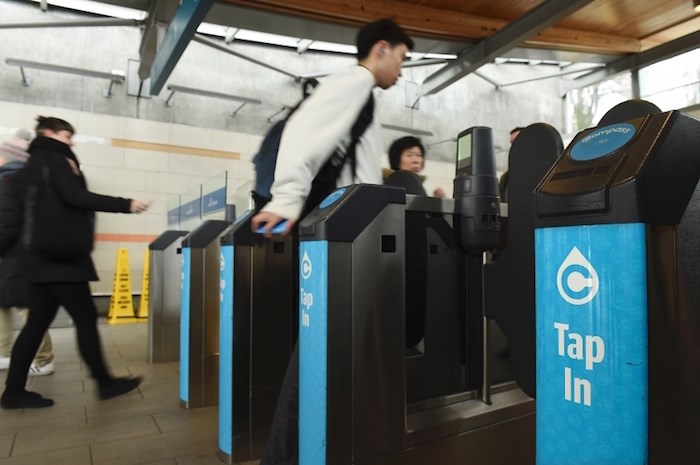We've all seen someone avoid paying their transit fare in Metro Vancouver. For whatever reason, people board the bus without paying, push through SkyTrain fare gates or walk closely behind someone and slip through without tapping their Compass card.
But what happens if you get caught? And how much money is that costing TransLink every year?
The effect of fare evasion on TransLink
"TransLink funds a significant portion of its operating costs from fare revenue," the B.C. transit service tells V.I.A. in an emailed statement. "People that evade paying fares are undermining the transit system because less revenue means less funding to provide the transit service so many people rely on."
According to the spokesperson, the majority of people pay their fares but because evasion is an issue that impacts all transit systems, TransLink implements measures to reduce occurrences, like installing fare gates. TransLink says they also work with the province, post-secondary institutions, social agencies, and other organizations "to provide a range of options for fare payment for those who may not be able to afford to pay for their transportation."
Offering multiple methods to pay fares is another way they are hoping to discourage the problem. Most recently, TransLink introduced the capability to tap your debit card.
Though TransLink would not share just how much fare evasion fiscally affects the agency or what margin is built into its budget for fare evasion, if any, the spokesperson did add that "customers are expected to be able to provide proof of payment in a fare-paid zone. A customer who does not provide proof of payment is subject to a Fare Infraction Notice (FIN)."
Metro Vancouver Transit Police and fare enforcement
Metro Vancouver Transit Police can also sometimes be seen at major transit hubs like Waterfront handing out these tickets or issuing warnings but Constable Amanda Steed explains that in recent years the police department's priorities have shifted.
"In the first inception of transit police, we did a lot more fare checking than we do now," she says, adding that now they conduct fewer checks and issue fewer tickets than people would expect.
Indeed, the number of FIN's issued for failure to present proof of payment within a fare paid zone in 2016 was 23,443 compared to 3,955 in 2022.
"We also issue provincial violation tickets for pushing through the fare gates, following someone through, or jumping over/under," Steed says, of which there were 4,562 issued in 2022 compared to 13,990 in 2017, a year after the SkyTrain fare gates became operational.
How police decide which transit stations to visit
"Our response to fare evasion is guided by intelligence reports and data as to the location where fare evasion is highest, also referred to as 'hot spots,'" explains Steed. "While we do have a dedicated team that specializes in various types of enforcement (the Targeted Mobile Enforcement Team), officers from our patrol section will occasionally set up a fare check at various stations throughout the system during their 12-hour shift. Where they decide to set up is generally dependent on which zone they are working in and which 'hot spot' has been identified."
Steed says the amount of people checked during enforcement really depends on the time of day and location and a variety of factors are considered when deciding to issue a fine versus a verbal warning (which are not recorded). Stations like Waterfront, which is Transit Police's main hub, or Bridgeport have a higher volume of people during rush hour versus smaller stations and therefore may have a higher number of violations.
It is also worth noting that Transit Police say "bus operators have never been encouraged to enforce fare" and that they are offered a training program by police.



